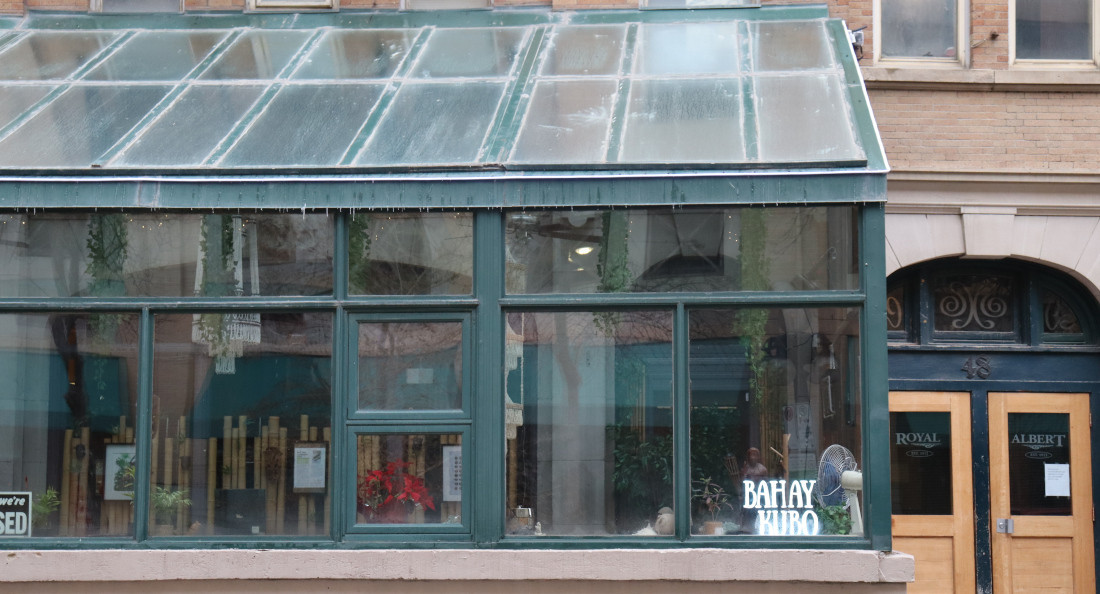Aloha means goodbye, among other things
Beloved restaurant Bahay Kubo extinguishes tiki torches
Over the past year, downtown denizens encountered a microcosm of tropic island life – the more luxurious parts, anyway – while walking past the Royal Albert Arms Hotel.
However, the warm lights and raucous laughter that enchanted pedestrians will soon bid farewell. On Dec. 3, Bahay Kubo, the restaurant and entertainment hub occupying the Arms’ atrium since late January 2023, announced via social media that they will close at the end of this month.
The Polynesian-Filipino fusion joint has served inspired favourites like Spam fries and classic cocktails (Mai Tai, anyone?) on an ever-rotating menu.
Allan Pineda, co-founder of Bahay Kubo, recalls the cookery’s inauspicious origins.
“We actually started out as an underground speakeasy like two years ago at The Pemby during COVID,” he says. “It started off as an underground, sober tiki bar. You didn’t even know where it was. You had to go to the back of the kitchen to get in.”
The Bahay Kubo ohana wouldn’t have been complete without the wizard with a whisk, co-founder and chef Eejay Chua.
“I didn’t know how to cook then, so I wanted to explore more into Filipino cuisine,” Chua says. He united with Pineda working on the international pop-up dinner series “Manila Nights” that took the pair across the globe, presenting their own culinary creations.
Following the Pembina Hotel’s closure and subsequent demolishment, Pineda and Chua retrofitted an Airbnb semi-regularly for their pop-up before finally settling in the Arms’ atrium. With $80, a box of antiques and a dream, the duo went to work.
“The bartenders in the whole tiki scene when it started in California, they were Filipinos. They fit the description, the vibe they were looking for,” Pineda says. “(The restaurant) is modeled after ’80s and ’90s Filipino homes, (with) a lot of the stuff that you’d see in our houses back in the day, but you don’t see it anymore.”
Pineda points at an elaborate frilled lighting fixture hanging from the ceiling of the restaurant, impossible to miss when seated inside.
“That was my mom’s.”
Aside from the carefully curated menu, Bahay Kubo operates as a lively community hub. The restaurant hosts live music performances, workshops, seminars and film screenings to provide a platform for local artists.
“For closing month, it’s like four sessions a week. Here, it’s a nice vibe, it’s intimate ... we want everybody to get their exposure,” Pineda says.
With no shortage of accolades, including recognition from The Globe and Mail as a staple of the Exchange, the conditions for closing are purely logistical. The pair cite the general ups and downs of the business, like inflation and minimum-wage increases, for the tough decision to shutter their bamboo doors.
So what does the future hold for both the decorated Bahay Kubo brand and the entrepreneurial duo?
“We’ll keep it alive in some aspects. We still cater. We still do weddings. We still do pop-ups, Pineda says.
“Secret,” Chua says. “We like to keep it on the DL. You won’t know until it’s out there.”
Published in Volume 78, Number 13 of The Uniter (January 10, 2024)







